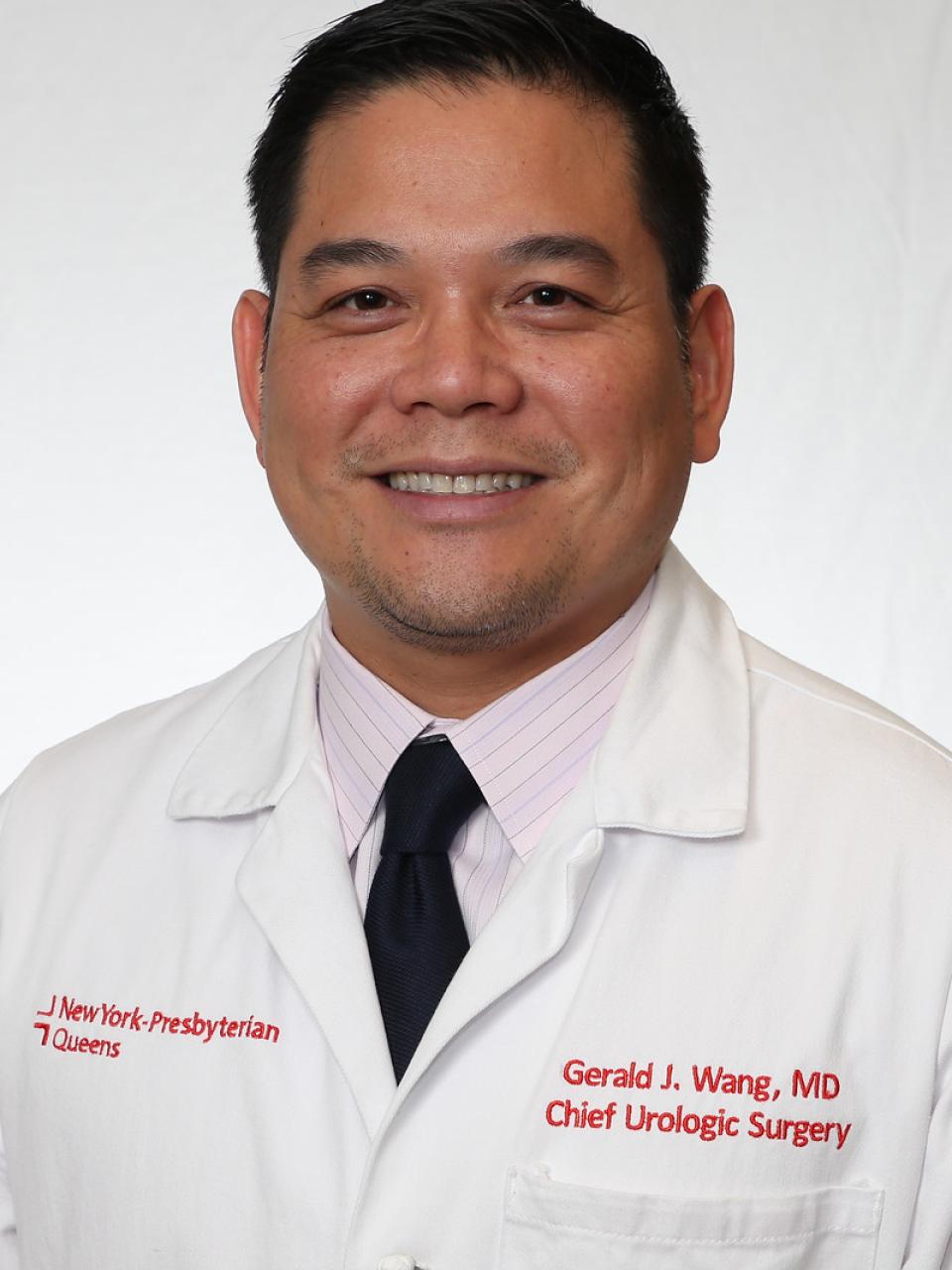
Gerald Wang M.D., F.A.C.S.
Dr. Wang received his bachelor of science degree from Yale University in Molecular Biophysics and Biochemistry, and he completed his M.D. degree at Stanford University School of Medicine. He completed his surgical internship and urology residency at Weill Cornell Medical College/NewYork-Presbyterian Hospital. After residency, he completed a fellowship in urologic oncology at Weill Cornell Medical College/NewYork-Presbyterian Hospital. Upon completion of fellowship training, Dr. Wang became Chief of Urology at NewYork-Presbyterian Queens in 2010. As a fellowship-trained urologic oncologist, Dr. Wang specializes in the evaluation and treatment of cancers of the genitourinary tract, including cancers of the prostate, bladder, kidney, ureter, adrenal gland and testis. Additionally, Dr. Wang specializes in minimally invasive surgical techniques, including robotic and laparoscopic surgery, to manage both urologic cancers and complex reconstructive surgeries of the genitourinary tract.
In addition to his clinical duties, Dr. Wang is active in both research and education. His research interests focus on improving outcomes of minimally invasive surgical approaches for bladder and kidney cancer, and he was involved in early studies demonstrating the safety and efficacy of robotic surgery in the treatment of bladder cancer. Dr. Wang has authored numerous peer-reviewed publications in national and international journals, and he has received a number of awards for his work including the Ferdinand C. Valentine Research Fellowship by the New York Academy of Medicine for his research on applications of multi-photon microscopy in bladder cancer. Dr. Wang has given numerous invited lectures both nationally and internationally.
Dr. Wang is active in the education and training of both urology residents and fellows. He serves as site director at NewYork-Presbyterian Queens for both the NewYork-Presbyterian/Weill Cornell urology residency program, as well as the NewYork-Presbyterian/Weill Cornell urologic oncology fellowship program. As Chief of Urology at NewYork-Presbyterian Queens, Dr. Wang also has numerous site-specific leadership positions which include the Steering Committee for the NewYork-Presbyterian Medical Group Queens, Perioperative Performance Improvement Committee, Quality Assurance and Peer Review Committee, and he is also Chair of the Robotic Surgery Committee. Dr. Wang serves as a member of the Executive Board of the New York Section of the American Urological Association, and he is a fellow of the American College of Surgeons.
